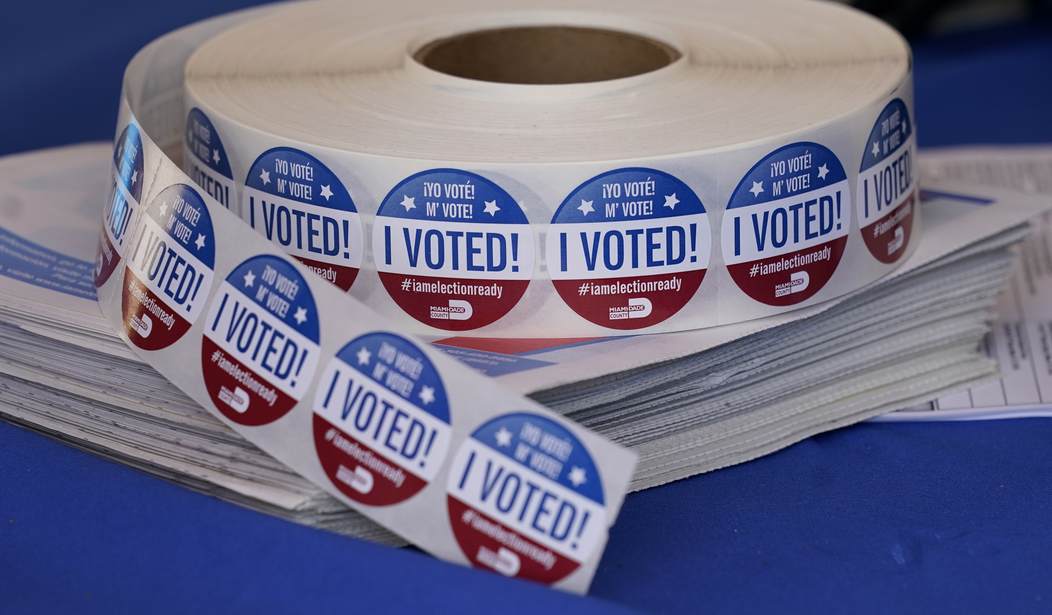America's political parties are the oldest and third-oldest in the world, and they have competed for votes among a population that has been diverse since colonial times. If you have any doubts about that, consult David Hackett Fischer's 1989 classic "Albion's Seed" on how settlers from different parts of the British Isles brought distinctive "folkways" to the different seaboard colonies and the Appalachian backwoods.
Since none of these groups has ever come close to constituting a majority of Americans, the partisan competition has usually been fierce and (except for the brief and misnamed "era of good feelings") unending. And fluctuating.
Regional differences have long been obvious: Differences between North and South produced the Civil War. But in recent elections, the Midwest has voted more like the South than like the Northeast or the West.
Racial and ethnic differences have often been critical. Black Americans voted almost unanimously Republican, when they were allowed to vote, from the 1860s to the 1930s. Since the 1960s, they have voted almost unanimously Democratic -- though that may be changing lately.
And "whites," treated as a uniform group by many analysts these days, used to have sharp divisions. New England politics for most of the 20th century was a battle, at the ballot box and in birth rates, between Yankee Protestant Republicans and Irish Catholic Democrats.
By the 1990s, evangelical Protestants emerged as a heavily Republican group, and in the 2010s, white college graduates (especially those with post-graduate degrees) as a heavily Democratic group.
And then there is the gender gap, the difference between male and female voters, which became statistically significant in 1980. In the years since, and despite the quip attributed to Henry Kissinger that "there's too much fraternizing with the enemy," it has grown wider.
Recommended
But not uniformly. As American Enterprise Institute's ace polling expert Karlyn Bowman together with Ruy Teixeira have pointed out, it's more of a marriage gap.
The exit poll in the almost even 2022 House (Republicans won the popular vote 50% to 47%) shows that married men voted 59% to 39% Republican, and unmarried men also went Republican by a smaller but significant 52% to 45% margin.
Married women, however, also voted Republican by a landslide 56% to 42% margin. So, why was the election so close? Because unmarried women favored Democrats 68% to 31%.
Note that married men and married women both made up 30% of the electorate. But there are a lot more unmarried women voters, 23% of the electorate, than unmarried men, 16%.
That reflects not only longer female lifespans but also female dominance in higher education, with women making up 60% of college and university students these days, and the trend toward later first marriages.
The upshot is that about one-third of Democratic voters are single women, which helps explain, as the Washington Examiner's Conn Carroll points out, the 2012 Obama "Life of Julia" cartoons, which showed government helping unattached women through life.
In general, women are more risk-averse than men, and thus more supportive of welfare state measures and more reluctant to support military action. They are also, as we have seen on female-dominated campuses, more willing to suppress speech that is seen as irritating or hurtful. "Highly educated women," as Australian educator Lorenzo Warby writes, "are proving all too willing to trash other people's freedoms to protect their emotions."
Surveys show that, after 50 years of feminism, American women are increasingly likely to report themselves as unhappy, a characteristic especially marked in unmarried young liberal women with no religious connection.
Of course, happiness is a subjective condition, perhaps subject to change in definition over time. But it's hard to avoid the conclusion of economist Tyler Cowen that "current political debate in America cannot be understood without the concept of neuroticism -- as a formal concept from personality psychology -- front and center."
This finds reflection in Biden-era Democrats' disguised but firm support for abortion up to the moment of birth (for reasons of "mental health") and for their eagerness to suppress speech that ran contrary to extreme risk-averseness during the COVID pandemic.
Those with memories ranging back to the 1970s and 1980s will recognize these attitudes as contrary to the positions of liberal Democrats then, including Joe Biden himself, who supported restrictions on late-term abortions and opposed government suppression of dissenting speech.
All of which undercuts the crude feminist view that everything would be better if women's views prevailed and provides support for the view that engagement, sometimes respectful and sometimes abrasive, between diverse segments -- blacks and whites, North and South, Yankees and Irish, married people and single women -- provides a better route to sensible policy and a successful nation.
























Join the conversation as a VIP Member